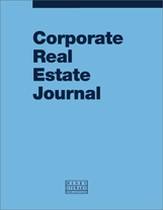Gen Z and the workplace: Can we all get along?
Abstract
Born between 1996 and 2012, Gen Z currently accounts for 20 per cent of the US population1 and 32 per cent of the global population, surpassing Millennials in size.2 Characterised as career-focused, hardworking and realistic, Gen Z is the most racially diverse and predicted to be the most highly educated generational cohort in US history.3 While much attention is currently being paid to their predecessors — the Millennials — Gen Z will comprise 30 per cent of the workforce by 2030, making knowledge of their workplace preferences and attitudes vital for corporate real estate (CRE) leaders globally. Gen Z is a truly global generation. If they have access to the Internet, they have access to the same news and information as their peers around the world, making geographical borders far less significant. This paper builds on previous work, published in the Corporate Real Estate Journal in 2018.4 As Gen Z enters the workforce, it will also have implications for office design and CRE strategies based on recent research. The paper will outline the findings of research led by Melissa Jancourt, now Principal Consultant for TAC Design LLC in partnership with the Interdisciplinary Center for Healthy Workplaces (IDCHW) at the University of California Berkeley and in association with national design firm, HGA’s Digital Practice Group. Data for the study was gathered through focus groups, design charrettes and validated through virtual reality (VR) experiences and a post-VR debrief. Four themes emerged as important among Gen Z participants: 1) balancing connections with nature, technology, convenience and location; 2) a clear distinction between the roles of humans as problem solvers and technology as facilitating connection; 3) psychological safety is a more prominent concern than physical safety; 4) inclusive environments that prioritize choice, control, and proximity are essential. A broader lens was adopted in subsequent rounds of testing — one that included diverse age groups across three global organisations. These results begin to give shape to a future workplace where multiple generations will work side-by-side. The addendum to this paper recognises the sudden and profound impact that COVID-19 has had on work and personal lives across the globe. Many of the trends identified in the Gen Z research respond to change driven through an intrinsic tie between organisational thriving and personal and communal resiliency. COVID-19 has proven to be an accelerant of these trends underlining the importance of enterprise-wide learning, personal connection and mental well-being.
The full article is available to subscribers to the journal.
Author's Biography
Melissa Jancourt IIDA, LEED AP co-leads HGA Work|SIGHT, the firm’s national strategic planning group focused on the cultivation of original insights that support the creation of places for people and organisations to thrive. Melissa is a recognised leader in workplace transformation and change leadership. Her collaborative approach is to blend secondary and primary research to develop an in-depth understanding of her clients, their business drivers, and the indicators of success that are meaningful to their organisation.
